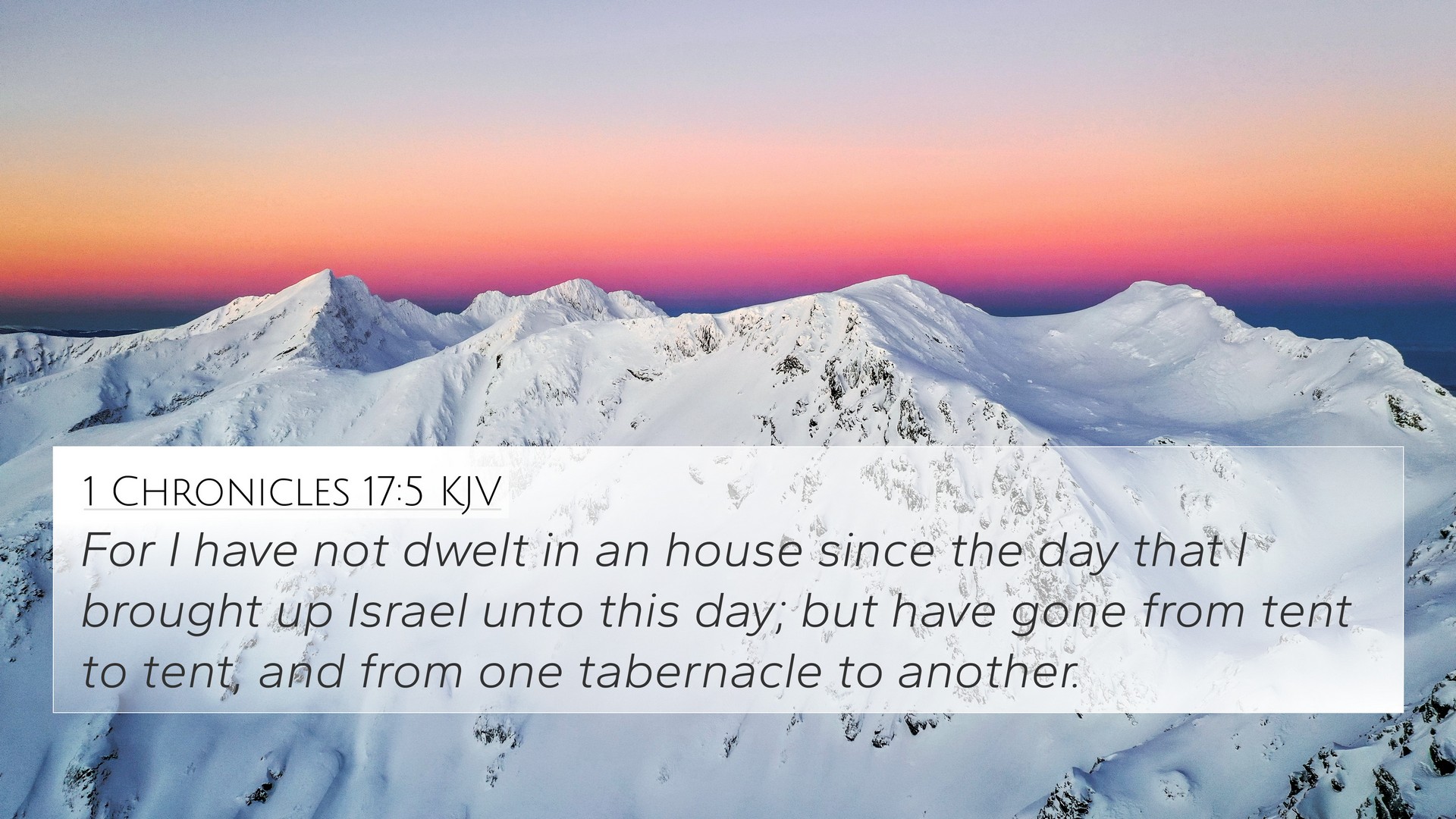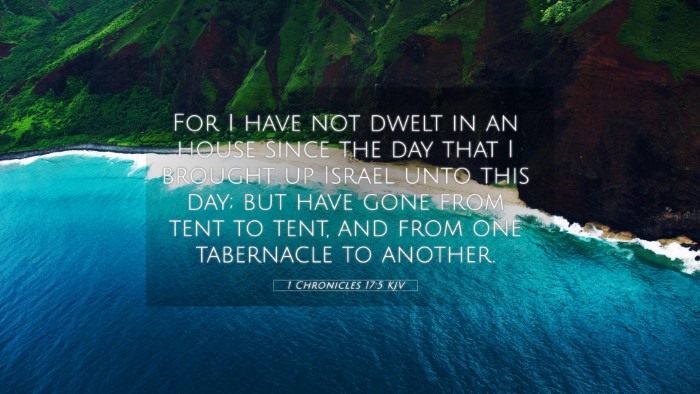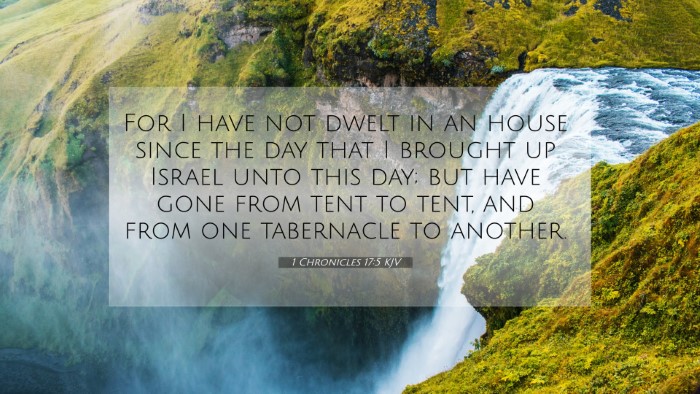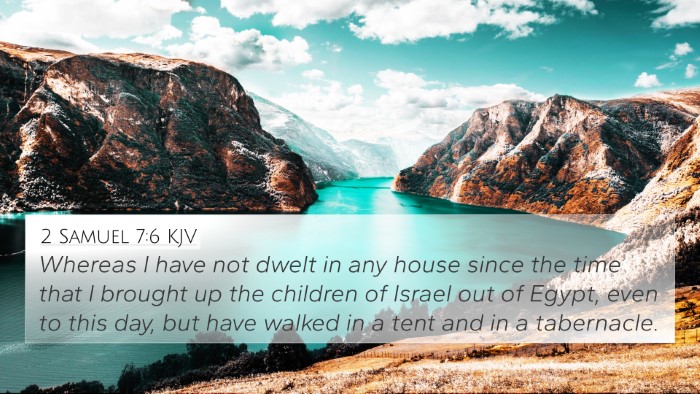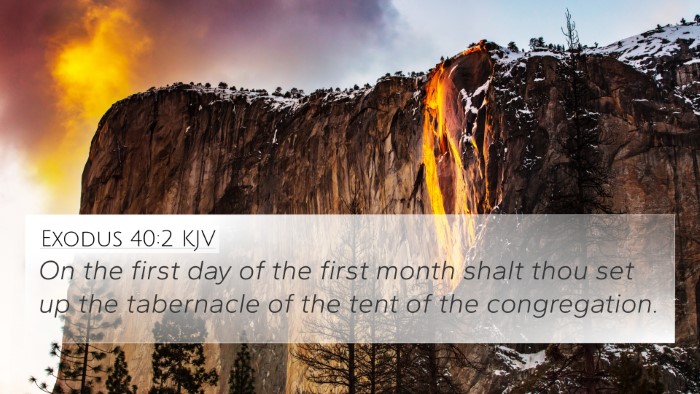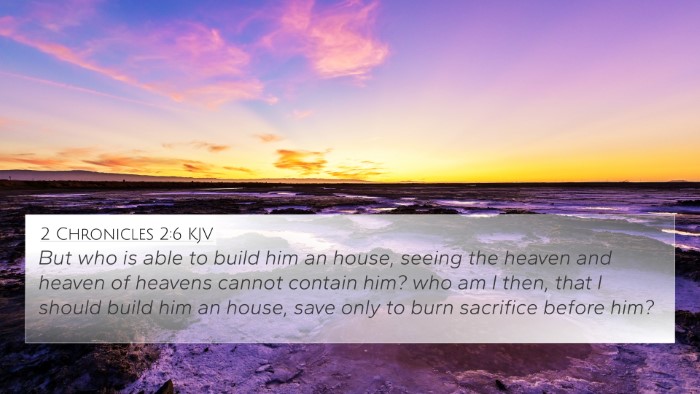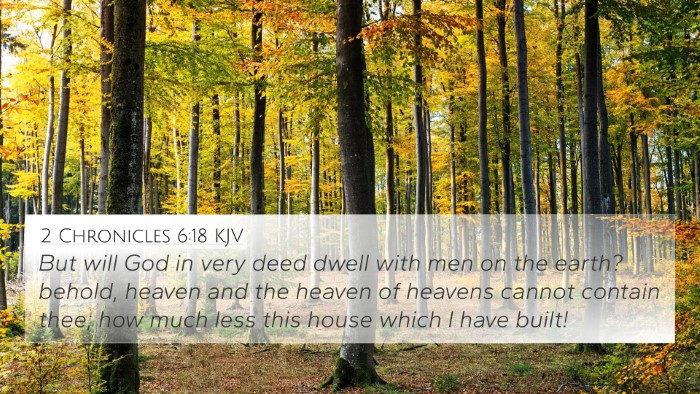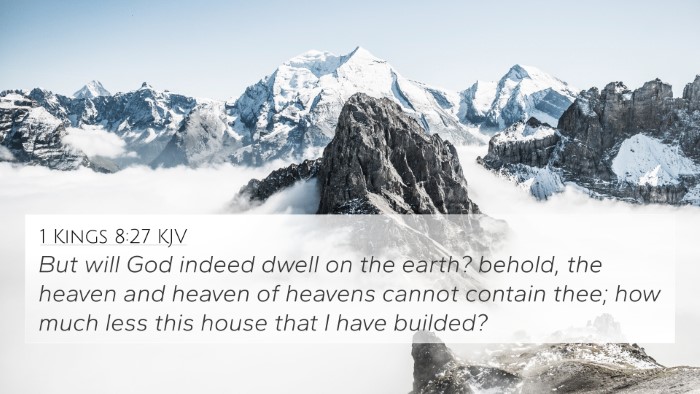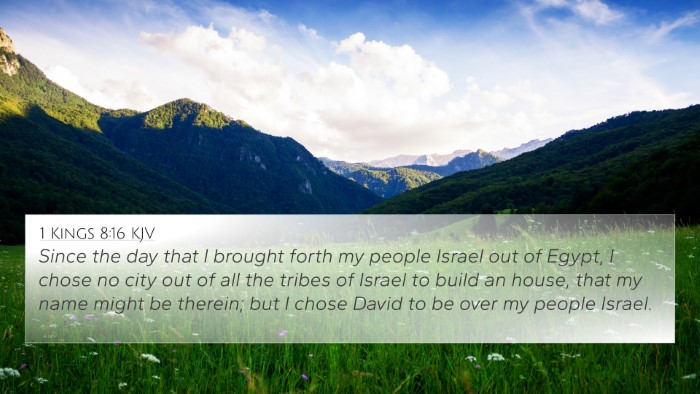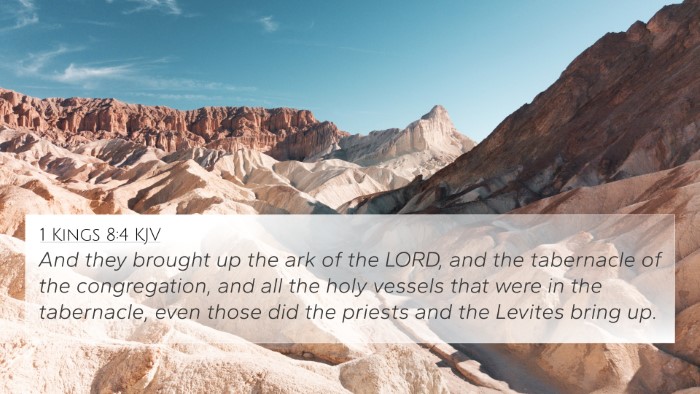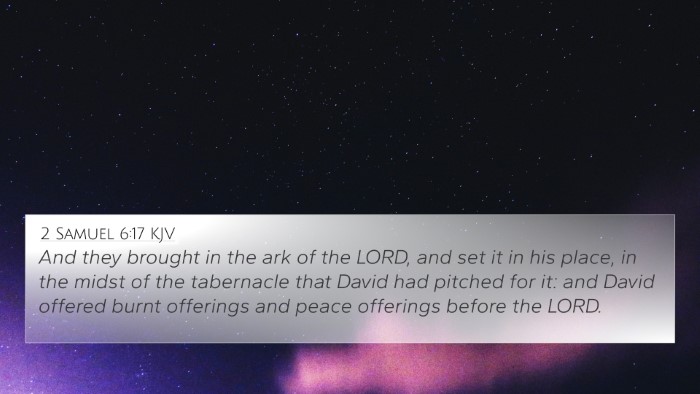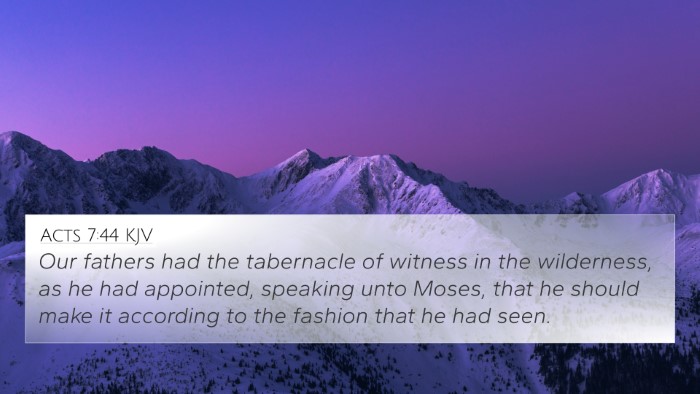Understanding 1 Chronicles 17:5
Bible Verse: 1 Chronicles 17:5 - "For I have not dwelt in a house since the day that I brought up Israel unto this day, but have gone from tent to tent, and from one tabernacle to another."
Summary of Meaning
This verse reflects God's message to David through the prophet Nathan, indicating His desire to dwell among His people without the need for a permanent structure. God has been leading Israel, moving from place to place, emphasizing His presence with them in their journey rather than being confined to a fixed location.
Thematic Insights
- God’s Presence: The verse illustrates God's active presence among His people.
- Nomadic Worship: It signifies the transition of worship from a physical temple to a more fluid form during Israel's formative years.
- Divine Sovereignty: Emphasizes God's authority in choosing how and where He interacts with humanity.
Commentary Insights
Matthew Henry: Matthew Henry remarks on the significance of God’s mobility, indicating that God does not require a permanent home as He is omnipresent. He points to the fact that God's dwelling place is not about physical structures but about a relationship with His people.
Albert Barnes: Barnes elaborates on God’s intention to dwell in a tent rather than a solid structure, highlighting the temporary nature of the tabernacle compared to the permanence desired for the temple. He suggests that God desires to be with His people in their travels and struggles.
Adam Clarke: Adam Clarke emphasizes the notion of God's faithfulness despite the temporary nature of the Israelite’s dwelling. He insists that God's leadership and guidance is not confined to the physical temple but is evident through His covenant with Israel.
Cross References
This verse connects to several other scripture passages, revealing a broader context of God’s relationship with His people:
- Exodus 25:8 - "And let them make me a sanctuary; that I may dwell among them." - God's initial command for a dwelling place.
- 2 Samuel 7:6-7 - "Wherever I have moved about among the Israelites, did I ever say to any of their rulers..." - God's reflections on His movement with Israel.
- Hebrews 8:2 - "A minister in the sanctuary and of the true tabernacle, which the Lord pitched, and not man." - The eternal dwelling of God transcending earthly structures.
- Matthew 18:20 - "For where two or three are gathered together in my name, there am I in the midst of them." - The continued presence of God among His people.
- Psalms 132:13-14 - "For the Lord has chosen Zion; he has desired it for his dwelling place." - God's choice of Jerusalem signifies His presence.
- Isaiah 66:1 - "Thus says the Lord: Heaven is my throne, and the earth is my footstool..." - God's sovereign majesty beyond physical structures.
- Acts 7:48-50 - "However, the Most High does not dwell in temples made with hands..." - Affirmation of God's transcendence over earthly temples.
Conclusion
1 Chronicles 17:5 serves as a poignant reminder of God’s enduring presence and His relationship with His people. By reflecting on this verse, believers gain insight into the mobility of God's presence and His desire for an intimate relationship with humanity. The connections made with other Bible verses allow for a deeper understanding of the overarching narrative of divine relationships throughout the scriptures, revealing the thematic threads that run through the Old and New Testaments.
Further Reflection
This verse invites readers to consider how God seeks to dwell among us today, not in physical temples, but in our hearts and communities. As we understand the significance of this passage, we can reflect on the ways we recognize or require God’s presence in our lives.
